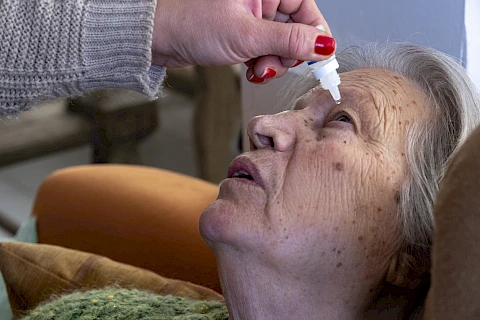
Our bodies undergo numerous changes as we age, which can also result in new health challenges. One common issue among older adults is dry eye syndrome, which can cause significant discomfort. Managing dry eye syndrome in seniors requires addressing the symptoms and underlying causes to alleviate discomfort and maintain optimal eye health.
Aging and Dry Eye Syndrome
Dry eye syndrome occurs when the eyes don't produce enough tears or the right kind of tears. The condition can lead to several uncomfortable symptoms, including itching, burning, and redness. Daily activities like reading or watching TV can become increasingly challenging.
Several factors increase a senior’s risk of developing dry eye syndrome. Aging is a primary factor. Tear production often decreases with age, leading to dry eyes. Many medications commonly prescribed to seniors, such as antihistamines or blood pressure drugs, can contribute to the condition. Environmental factors, such as exposure to wind, dry air, or smoke, can exacerbate dry eye symptoms.
Strategies for Relief
Several strategies can provide relief and improve comfort when managing dry eye syndrome.
Artificial Tears
Artificial tears keep eyes moist and relieve dryness. There are many available over-the-counter options, including preservative-free and thicker gel-based drops. Use artificial tears as directed, usually a few times a day. Follow the instructions on the packaging or those given by a healthcare provider.
Increasing Moisture in the Air
A humidified environment can prevent the evaporation of tears, keeping eyes more moist. Use a humidifier, especially in the winter months or in dry climates. Consider placing water bowls near heating vents or indoor plants to increase humidity.
Eye Breaks
Continuous focus on screens or reading materials can exacerbate dry eye symptoms. Taking breaks from activities that strain the eyes can provide significant relief. Encourage your loved one to follow the 20-20-20 rule: every 20 minutes, have them look at something 20 feet away for at least 20 seconds.
When to Seek Professional Help
While you can manage dry eyes at home, certain situations may require professional intervention. If symptoms persist despite using artificial tears and other home remedies, it's time to see an eye doctor. Promptly addressing persistent dry eye symptoms with professional help can prevent complications. Eye check-ups are integral in monitoring eye health and catching any problems early. When you visit the eye doctor, describe all symptoms, their duration, and any treatments you have tried. Persistent dry eye symptoms might indicate an underlying condition or require a more specialized treatment approach. This information will help the doctor provide the best possible care.
Senior Helpers Offers Transport for Eye Appointments and More
An integral part of managing dry eye syndrome in seniors is seeing an eye doctor for routine exams. If your senior loved one could use some assistance with transportation when getting to and from their eye checkups, we can help. Senior Helpers Northwest Indiana provides professional in-home support for seniors in Crown Point, Gary, Hammond, and Lake County, including help with transportation and appointments, assistance with errands, and other facets of senior care. Contact us today to learn more about our services!